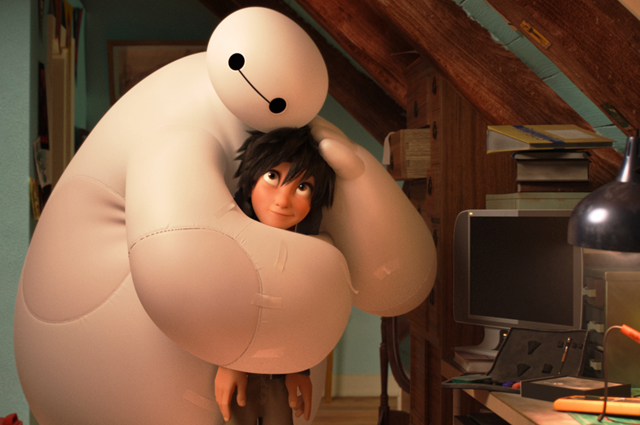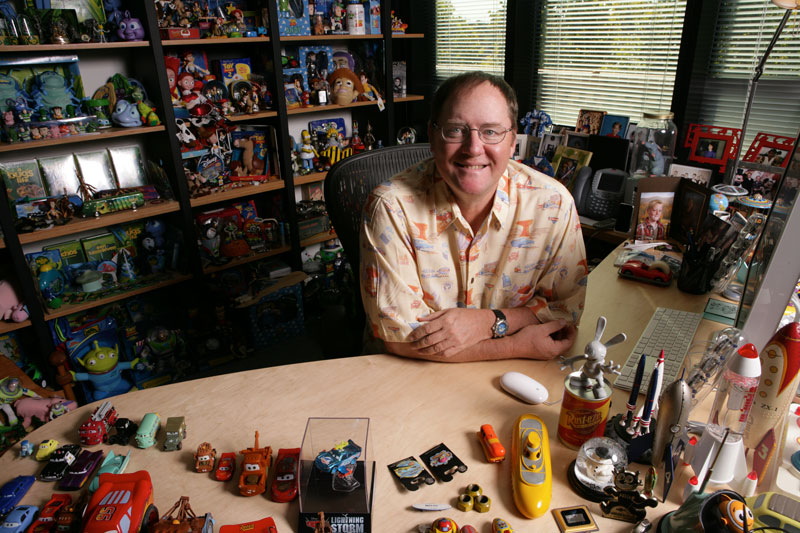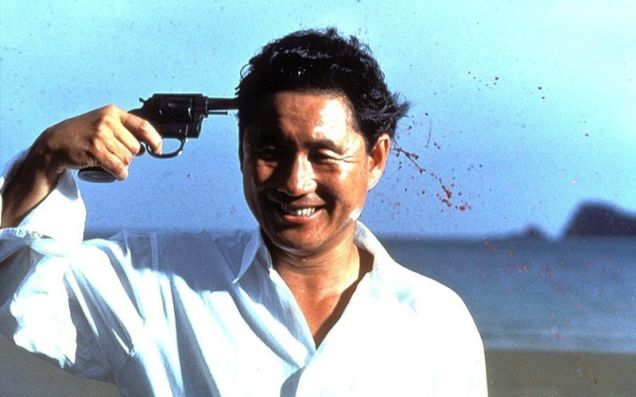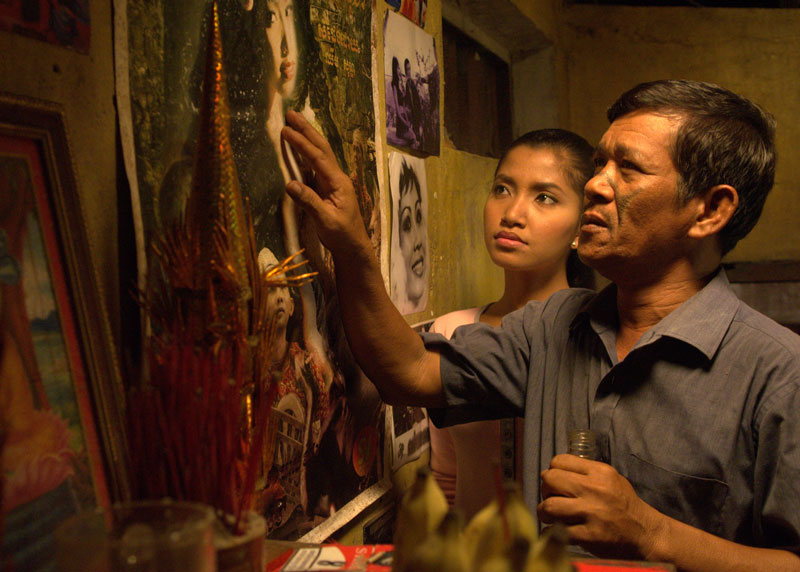Tokyo International Film Festival (TIFF) wrapped up last Friday with a lavish ceremony honoring past and future filmmaking talent while awarding prizes to this year’s best films. The event celebrated its 27th year with a showcase on animation alongside its regular lineup of special screenings, world cinema and Japanese independent features. Featuring appearances from some major players in the film industry—both here in Japan and from overseas—and special events offering interaction between fans and filmmakers, TIFF is Japan’s most important celebration of all things cinema. These are a few of the highlights from ten days at Tokyo’s premier film event.
By Christopher O’Keeffe
John Lasseter and Big Hero 6
To mark this year’s focus on animation, festival organizers scored big by obtaining the World Premiere of Disney Animation Studio’s latest, Big Hero 6, as the opening film. Before the festival even began, the directors of the movie, Don Hall and Chris Williams, appeared at a press conference to promote the film and reveal their love of Japan. Clearly thrilled to be there, the duo gushed about the inspiration they took from the city of Tokyo, which included the design of the main character, cuddly robot Baymax: “…when I was in Tokyo I was in a temple and I saw a bell. I wanted Baymax to be pleasing in appearance, so when I saw a smile in that bell I thought it would be the perfect face for Baymax. I think because we work in animation and love animation so much, we see characters everywhere.”
The duo was exuberant throughout festival proceedings, but couldn’t match the indomitable presence of Pixar co-founder and current Disney Chief Creative Officer John Lasseter. Arriving on the red carpet to the delight of Baymax-wielding fans, Lasseter would later give a presentation on the theme of “Cool Japan,” during which the groundbreaking animator took the opportunity to talk at length of his love and admiration for Japan’s own animation king Hayao Miyazaki and his influence on his work.
Takeshi Kitano Talks Tough
Better known by his stage name “Beat” Takeshi, Kitano is one of the best-known Japanese filmmakers in the world today, thanks to the early championing of his work by prominent players in the international film scene. The director’s reputation was cemented with the victory of Yakuza classic Hana-bi at the Venice Film Festival in 1997, and the filmmaker went on to success with the likes of Dolls, Zatoichi, and Outrage. A popular comedian long before he became a filmmaker, Kitano was in outrageous form at a special event that gave young directors the chance to ask the veteran some questions. The industry outsider took the opportunity to openly criticize what he called a “stifling” Japanese film industry, as well as the people who run it. “Of all the Japanese Academy nominated films, I don’t think there’s a case where it’s a film not from one of the big companies—Shochiku, Toei or Nikkatsu. Who nominates these films? The Academy Members. Are there any members here? No! They aren’t here!” Kitano went on to reveal a dislike of animation that even extended to a legend in the industry. “I don’t like Miyazaki!” said the Violent Cop director—while making the caveat that it’s important to “recognize there are other opinions when you are making films.”
The World of Hideaki Anno
Weekender scored an interview with the legendary Neon Genesis Evangelion director before the festival (which you can read here), and the animation director was present during stage appearances at TOHO Cinemas Nihonbashi, where works from throughout his career were shown. Evangelion super-fans had the opportunity to attend all-night screenings of the director’s most famous work. Viewers could also catch older features such as GunBuster and Nadia: The Secret of Blue Water, as well as live-action features, including LOVE AND POP and ritual.
Jury President James Gunn and the Festival Winners
Coming off the back of directing global box-office smash Guardians of the Galaxy, James Gunn has quickly risen through the ranks to become one of the world’s most sought-after filmmakers. On exuberant form at every public appearance, the director thunderously announced his appreciation to the people of Tokyo for coming out to support the opening event and he had lost none of his energy come the closing ceremony.
Gunn awarded the top prize, the Tokyo Grand Prix, to brothers Benny and Joshua Safdie for their tale of love and addiction in New York, Heaven Knows What.
Other winners were as follows:
Samurai Award
Created this year to celebrate filmmakers who continue to set the bar higher and higher for innovation, the inaugural awards were presented by Ringu actress and festival “Muse” to Takeshi Kitano and Tim Burton.
Japanese Cinema Splash: 100 YEN LOVE (Dir. Masaharu Take)
The Spirit of Asia Award: The Last Reel (Dir. Sotho Kulikar)
Best Asian Future Film Award: Borderless (Dir. Amirhossein Asgari)
Competition Section
Wowow Viewer’s Choice Award: Test (Dir. Alexander Kott)
Best Artistic Contribution: Test (Dir. Alexander Kott)
Best Actor: Robert Wickiewicz—The Mighty Angel
Best Actress: Miyazawa Rie—Pale Moon
Best Director: Joshua Safdie, Benny Safdie—Heaven Knows What
While the festival may have ended, many of the films shown will be coming to cinema screens at a future date. While catching world cinema in Japan isn’t the easiest thing to do, these are some of the highlights of the festival and the names to keep a look out for.
Weekender Top Five TIFF Picks
Big Hero 6—(pictured above) The opening film at TIFF, Disney’s latest shouldn’t be too hard to catch, it’s at cinemas on November 7. Young Hiro Hamada is a robotics prodigy whose world is devastated when his beloved older brother Tadashi dies in an accident. At his lowest point, Hiro accidentally activates Baymax, a giant cuddly robot that Tadashi created before his passing. The pair is quickly launched into an adventure involving robots, superheroes and evil villains all set in the futuristic city of San Fransokyo.
Force Majeure—Exceptional Swedish drama with some unforgettable moments of delightfully dark comedy. A family enjoying a skiing holiday in the French Alps has their world turned upside after an avalanche appears to be coming towards them while they are enjoying lunch on a restaurant balcony. When the dust settles it transpires that while the mother was protecting the children, the father had run for his life. The couple struggle to continue as normal after the event—leading to a hilariously awkward dinner party—while their marriage hangs in the balance.
The Last Reel—The directorial debut of Sotho Kulikar, who grew up in Cambodia during the Khmer Rouge’s reign of terror, this film attempts to deal with the scars of the past. With trouble at home and a father intent on forcing her into a marriage she doesn’t want, Sophoun takes refuge in a decrepit old cinema. Discovering an incomplete film from the 70s, featuring her beloved but desperately ill mother, Sophoun attempts to remake the final missing reel, and in doing so discovers painful buried truths about her family and of the brutality of the Khmer Rouge. The director picked up the festival’s “Spirit of Asia” Award for this incredible work.
The Teacher’s Diary—CROSSCUT ASIA is a new series at the Festival that chose to focus on Thai cinema this year. The Teacher’s Diary is a broad romantic-comedy centered around two likable leads and cute performances from the younger members of the cast. Song is desperate to get a job as a teacher, but without qualifications he takes the only post offered to him—teaching in a rickety floating school on a lake cut off from civilization by surrounding mountains. Struggling to deal with the children and feeling alone, Song learns to cope after finding the diary of Ann, the previous teacher at the school who shared many of the same problems that Song is now facing. Cutting between the lives of the two leads, the children provide a cute constant as they struggle with love, life and learning in this charming comedy.
Ecotherapy Getaway Holiday—The most talked-about film in the “Japanese Splash” section came from Shuichi Okita, who has had previous success at the festival, with his 2011 Special Jury prize-winner The Woodsman and the Rain. Okita’s latest follows a group of elderly women as they embark on a walking tour through the woods. It’s all fun and games until the unreliable guide disappears, leaving the women to fend for themselves in this comedy drama featuring delightful performances from a non-professional cast. (Other titles that had people talking in this section included Japanese Splash competition winner 100 YEN LOVE and intimate documentary Walking With My Mother.)












